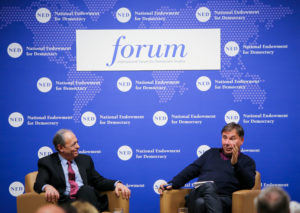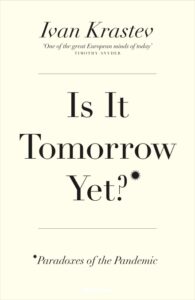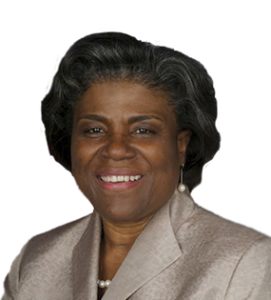 As Joe Biden prepares to enter the White House, the United States is no longer the only superpower, argues Ivan Krastev (right), the chairman of the Center for Liberal Strategies, a permanent fellow at the Institute for Human Sciences in Vienna and the author, most recently, of “Is It Tomorrow Yet? Paradoxes of the Pandemic.”
As Joe Biden prepares to enter the White House, the United States is no longer the only superpower, argues Ivan Krastev (right), the chairman of the Center for Liberal Strategies, a permanent fellow at the Institute for Human Sciences in Vienna and the author, most recently, of “Is It Tomorrow Yet? Paradoxes of the Pandemic.”
Unfortunately, the world in which he will govern — marked by the rise of authoritarian powers and the spread of nationalism and inequality — is not the one in which either Americans or Europeans would prefer to live, he writes for the Times. For the past century, America’s power has also represented the power of democracy. In the days after the storming of the Capitol, democratic leaders in Europe cannot take the resilience of American democracy for granted, nor the standing power of America’s global influence.
In response to the Capitol insurrection, the U.S. should at all levels of government and in civil society elevate civic education as a national security imperative, Suzanne Spaulding, a senior adviser at the CSIS Defending Democratic Institutions project and CSIS program manager Devi Nair write in Institutional Integrity: Learning the Right Lessons from the Capitol Siege:
Our democracy is strong but not invincible. It must be fought for in the face of attacks from enemies domestic and foreign. It is worth fighting for not because it is perfect, but because, unlike authoritarian regimes, it is capable of change through peaceful, constitutional means. On January 6, we witnessed an effort at change through violence—an insurrection. All Americans should be equipped to be effective agents of change within our system and to do their part in sustaining our democracy.
 A departing political appointee at the nation’s leading foreign aid agency told staff on Tuesday that the deadly riot at the U.S. Capitol was the work of “a few violent people,” and added “several million” others there were protesting peacefully for electoral reform, according to audio recordings of a staff meeting obtained by The Washington Post:
A departing political appointee at the nation’s leading foreign aid agency told staff on Tuesday that the deadly riot at the U.S. Capitol was the work of “a few violent people,” and added “several million” others there were protesting peacefully for electoral reform, according to audio recordings of a staff meeting obtained by The Washington Post:
Tim Meisburger is a Trump appointee and a departing deputy assistant administrator at the U.S. Agency for International Development’s bureau for development, democracy and innovation. …..“What I saw was several million people demonstrating in the Capitol, peaceful protesters in the Capitol,” said Meisburger, according to an audio recording of the video call. “I saw a few violent people and I’m not, I would never endorse violence. But what I saw was a lot of people who were committed to reform. And they were committed to electoral reform.”
Steven Feldstein, a former USAID and State Department official who served during the Bush and Obama administrations, said Meisburger’s comments were shocking for their “tone deafness.”
“How can U.S. government democracy assistance officials continue to promote peaceful, legitimate and fair elections around the world, while at the same time offering suggestions that the U.S. elections themselves and the violent aftermath are an acceptable conclusion to our electoral process?” asked Feldstein, who is now a senior fellow at the Carnegie Endowment for International Peace, a Washington think tank.
 Former Obama administration official Samantha Power would help USAID to affirm its support for human rights, democracy, and marginalized populations, Ambassador Donald Steinberg writes for Just Security:
Former Obama administration official Samantha Power would help USAID to affirm its support for human rights, democracy, and marginalized populations, Ambassador Donald Steinberg writes for Just Security:
Power will bring a stature that few other USAID administrators have matched. Her prior relationships with Biden, Secretary of State-nominee Antony Blinken, incoming National Security Advisor Jake Sullivan, incoming Domestic Policy Advisor Susan Rice, U.N. Ambassador-nominee Linda Thomas-Greenfield (right), and other key officials will combine with her understanding of government structures to transform ideas into actions. While known as a team player, her ability to pick up the phone and call Biden directly will only enhance USAID’s bureaucratic status.
Some liberals argued that the promotion of democracy is America’s duty, but there is an enormous difference between democracy promotion by coercive and non-coercive means, says Joseph S. Nye, Jr., a professor at Harvard University and author, most recently, of Do Morals Matter? Presidents and Foreign Policy from FDR to Trump. Voice of America broadcasts and the National Endowment for Democracy cross international borders in a very different manner than the 82nd Airborne Division does, he writes for Project Syndicate:
In terms of consequences, the means are often as important as the ends. Where will Biden land on the spectrum of interventions intended to promote security, democracy, and human rights? We may find an encouraging clue in his history of good judgment and contextual intelligence. But we must also bear in mind that sometimes surprises occur, and events take control.







